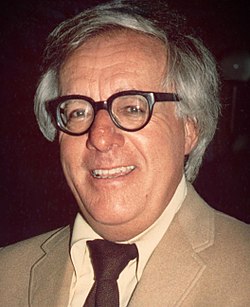Ray Bradbury Quote
And what lights the sun? Its own fire. And the sun goes on, day after day, burning and burning. The sun and time. The sun and time and burning. Burning. The river bobbled him along gently. Burning. The sun and every clock on the earth. It all came together and became a single thing in his mind. After a long time of floating on the land and a short time of floating in the river he knew why he must never burn again in his life.
Ray Bradbury
And what lights the sun? Its own fire. And the sun goes on, day after day, burning and burning. The sun and time. The sun and time and burning. Burning. The river bobbled him along gently. Burning. The sun and every clock on the earth. It all came together and became a single thing in his mind. After a long time of floating on the land and a short time of floating in the river he knew why he must never burn again in his life.
Related Quotes
Detachment is not the absence of emotion, it is the process of becoming one with the Oneness that is the Universe. To be detached, is to realize that the fullness of all there is, is too much to react...
Justin K. McFarlane Beau
Tags:
absence, acknowledge, detachement, emotion, epiphany, fragment, fullness, indifferent, knowledge, numb
I want to think about trees. Trees have a curious relationship to the subject of the present moment. There are many created things in the universe that outlive us, that outlive the sun, even, but I ca...
Annie Dillard
Tags:
beauty, belief, consciousness, creation, curiosity, disbelief, energy, enoughness, epiphany, exploration
It looked as though the leaves of the autumn forest had taken flight, and were pouring down the valley like a waterfall, like a tidal wave, all the leaves of the hardwoods from here to Hudson’s Bay. I...
Annie Dillard
Tags:
beauty, belief, consciousness, creation, curiosity, disbelief, energy, enoughness, epiphany, exploration
I have often noticed that these things, which obsess me, neither bother nor impress other people even slightly. I am horribly apt to approach some innocent at a gathering, and like the ancient mariner...
Annie Dillard
Tags:
beauty, belief, consciousness, creation, curiosity, disbelief, energy, enoughness, epiphany, exploration
Xerxes, I read, ‘halted his unwieldy army for days that he might contemplate to his satisfaction’ the beauty of a single sycamore. You are Xerxes in Persia. Your army spreads on a vast and arid penep...
Annie Dillard
Tags:
beauty, belief, consciousness, creation, curiosity, disbelief, energy, enoughness, epiphany, exploration
Last year I had a very unusual experience. I was awake, with my eyes closed, when I had a dream. It was a small dream about time. I was dead, I guess, in deep blank space high up above many white star...
Annie Dillard
Tags:
beauty, belief, consciousness, creation, curiosity, disbelief, energy, enoughness, epiphany, exploration
About Ray Bradbury
Ray Douglas Bradbury (US: BRAD-berr-ee; August 22, 1920 – June 5, 2012) was an American author and screenwriter. One of the most celebrated 20th-century American writers, he worked in a variety of genres, including fantasy, science fiction, horror, mystery, and realistic fiction.
Bradbury is best known for his novel Fahrenheit 451 (1953) and his short-story collections The Martian Chronicles (1950), The Illustrated Man (1951), and The October Country (1955). Other notable works include the coming of age novel Dandelion Wine (1957), the dark fantasy Something Wicked This Way Comes (1962) and the fictionalized memoir Green Shadows, White Whale (1992). He also wrote and consulted on screenplays and television scripts, including Moby Dick and It Came from Outer Space. Many of his works were adapted into television and film productions as well as comic books. Bradbury also wrote poetry which has been published in several collections, such as They Have Not Seen the Stars (2001).
The New York Times called Bradbury "An author whose fanciful imagination, poetic prose, and mature understanding of human character have won him an international reputation" and "the writer most responsible for bringing modern science fiction into the literary mainstream".
Bradbury is best known for his novel Fahrenheit 451 (1953) and his short-story collections The Martian Chronicles (1950), The Illustrated Man (1951), and The October Country (1955). Other notable works include the coming of age novel Dandelion Wine (1957), the dark fantasy Something Wicked This Way Comes (1962) and the fictionalized memoir Green Shadows, White Whale (1992). He also wrote and consulted on screenplays and television scripts, including Moby Dick and It Came from Outer Space. Many of his works were adapted into television and film productions as well as comic books. Bradbury also wrote poetry which has been published in several collections, such as They Have Not Seen the Stars (2001).
The New York Times called Bradbury "An author whose fanciful imagination, poetic prose, and mature understanding of human character have won him an international reputation" and "the writer most responsible for bringing modern science fiction into the literary mainstream".
